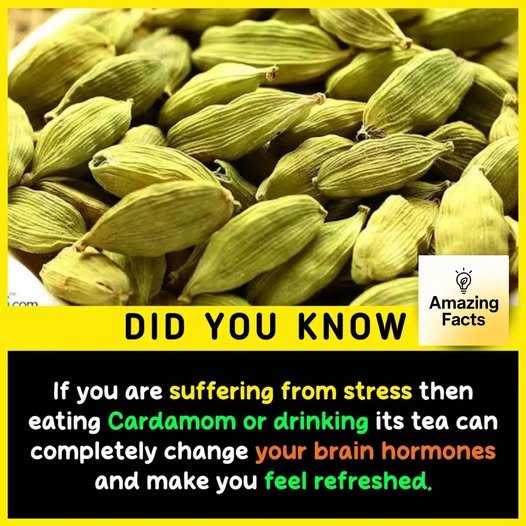While cardamom isn’t a miracle cure, this fragrant spice has been valued for centuries—not just for its unique flavor, but for its potential wellness benefits. Incorporating cardamom into your diet may offer gentle support in managing stress and enhancing mood.
Cardamom contains compounds with antioxidant and anti-inflammatory properties, which may help reduce oxidative stress in the body—a factor linked to anxiety and low mood. Some traditional medicine systems even consider cardamom a calming agent, often used in teas or as part of soothing spice blends.
Whether you’re adding it to your morning coffee, sprinkling it on oatmeal, or enjoying it in a warm chai, cardamom offers more than just a delicious aroma. It’s a small step, but one that may contribute to a more balanced and uplifted state of mind.
What Do We Mean by “Subtle Benefits”?
When we say cardamom may offer subtle benefits, we’re acknowledging a few key things:
1. Not a Dramatic Effect, But a Gentle Influence
Cardamom isn’t like a pharmaceutical drug that produces immediate, noticeable changes in brain chemistry. Instead, its effects are gradual, cumulative, and often indirect. You may not feel dramatically different after one cup of cardamom tea—but over time, consistent use as part of a healthy lifestyle might help improve your baseline mood or resilience to stress.
2. Bioactive Compounds at Work
Cardamom contains several compounds—like cineole, limonene, and flavonoids—with antioxidant and anti-inflammatory properties. These don’t target stress directly, but they support systems involved in mood regulation, such as:
- Reducing oxidative stress, which is linked to anxiety and low mood
- Improving gut health, which affects the gut-brain axis
- Balancing cortisol levels, though this is still being studied
3. Supports Ritual, Which Can Reduce Stress
Using cardamom in your daily routine—say, in a warm tea or slow-brewed chai—can be part of a mindful ritual. The act of pausing, breathing in the scent, and savoring the flavor supports a calming sensory experience that reduces stress on a psychological level, even if the physiological effects are mild.
4. Complementary, Not Primary
Think of cardamom as part of a supporting cast, not the star of the show. It pairs well with other stress-reducing lifestyle habits: regular sleep, a nutrient-rich diet, movement, and mindfulness. In this context, its subtle benefits can add up, reinforcing a more grounded and balanced mental state.



